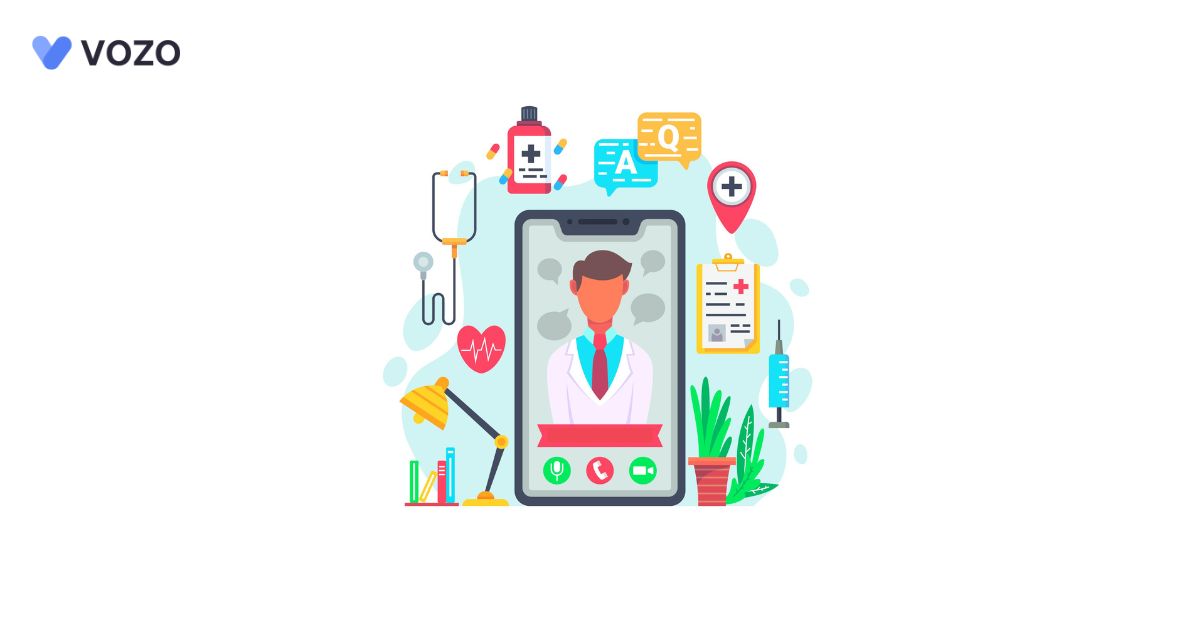Enhancing Clinician Satisfaction: The Impact of Ambulatory EHR Systems
Amid the swiftly changing terrain of healthcare technology advancements, electronic health record (EHR) systems have become integral tools for healthcare providers.
RELATED: Why Shifting to an All-In-One EHR Cloud Solution is Important in 2023? [10 Benefits]
Among them, ambulatory EHR systems stand out for their potential to streamline workflows, improve patient care, and enhance overall clinician satisfaction.
RELATED: Ambulatory EHR vs Inpatient EHR: Which one is for your practice?
This article explores deeply the pivotal role of ambulatory EHR systems in boosting clinician satisfaction and explores the key benefits and challenges associated with their implementation.
The Role of Ambulatory EHR Systems
Ambulatory EHR systems, tailored specifically for outpatient care settings, have transformed the way healthcare providers manage patient information.
- These systems enable clinicians to record, retrieve, and share patient data seamlessly, ultimately contributing to more informed decision-making and coordinated patient care
- By providing a comprehensive and easily accessible overview of a patient’s medical history, medications, test results, and treatment plans, ambulatory EHR systems empower clinicians to deliver personalized and effective care
Benefits of Ambulatory EHR Systems on Clinician Satisfaction
1. Enhanced Efficiency
- One of the primary advantages of ambulatory EHR systems is their ability to streamline administrative tasks
- Automated documentation, appointment scheduling, and billing processes free up valuable time for clinicians to focus on patient interactions and medical decision-making
2. Improved Patient Care
- Ambulatory EHR systems enable clinicians to access up-to-date patient information promptly, leading to better diagnosis and treatment decisions
- Integrated clinical decision support tools provide alerts and recommendations, ensuring adherence to best practices and reducing medical errors
3. Enhanced Communication and Collaboration
- These systems facilitate seamless communication among healthcare team members, promoting collaboration and care coordination
- Clinicians can securely share patient information, test results, and treatment plans, leading to more effective interdisciplinary teamwork
4. Patient Engagement
- Ambulatory EHR systems often come with patient portals, allowing patients to access their health records, lab results, and appointment schedules
- This transparency empowers patients to take an active role in their healthcare journey, leading to increased patient satisfaction and improved outcomes
5. Data-Driven Insights
- EHR systems accumulate vast amounts of clinical data, which can be leveraged for research, quality improvement initiatives, and population health management
- Clinicians can derive meaningful insights from this data to enhance patient care strategies and optimize clinical workflows
Challenges to Consider
1. Implementation Challenges
- The transition to an ambulatory EHR system requires careful planning and training
- Clinicians may initially experience a learning curve, which could impact their satisfaction during the early stages of adoption
2. User Interface and Design
- The user interface of EHR systems can influence how intuitive and user-friendly they are.
- A well-designed interface contributes to smoother navigation and a more positive user experience
3. Interoperability Concerns
- In today’s interconnected healthcare ecosystem, the interoperability of EHR systems with other platforms is crucial
- Challenges in data sharing and integration between different systems can hinder the seamless exchange of patient information
4. Data Security and Privacy
- With the digitization of patient records, concerns about data breaches and unauthorized access arise
- Implementing robust security measures is essential to protect patient confidentiality and comply with data protection regulations
5. Documentation Burden
- While EHR systems aim to streamline documentation, some clinicians might feel that the process of data entry detracts from direct patient interactions
- Balancing documentation requirements with patient care remains a challenge
Final Thoughts
In the quest to enhance clinician satisfaction, ambulatory EHR systems have emerged as game-changers in the healthcare industry.
Their potential to streamline workflows, improve patient care, and foster collaboration among healthcare professionals cannot be overstated. While challenges such as implementation hurdles and user interface design need to be addressed, the benefits of these systems are evident in the form of enhanced efficiency, improved patient care, and increased patient engagement.
As healthcare technology continues to evolve, ambulatory EHR systems stand as a testament to the positive impact of innovation on clinician satisfaction and patient outcomes.
Vozo Cloud-EHR
Time is the main barrier that keeps healthcare professionals away from their patients and the delivery of quality care to them. Vozo EHR lets you concentrate on your patients despite your busy schedules through effective implementation and integration and makes valuable time for you to grow your hospital.
- Vozo’s Cloud EHR acts as the backbone for all your hospital needs
- We tailor features to correct and speed up your workflow to provide quality care
- Whether you’re implementing new software or replacing your current EHR, we have you all covered
Our customizable templates let physicians view patient records & create case notes and more from a single screen. Vozo RCM, Patient Portal, & Telehealth integrated with EHR & Healthcare Practice Management software offer greater efficiency and cost savings across the board. Our specialty-specific tools improve workflow, billing, scheduling, and documentation.
Our features include e-prescribing, security, patient portals, lab integration, cloud hosting, and more. We offer the best means of ICD-10 standards which minimizes your administrative work.
“Let’s make your beaming practice reach more on time to all with our integrated Cloud All-in-one EHR software”
About the author

With more than 4 years of experience in the dynamic healthcare technology landscape, Sid specializes in crafting compelling content on topics including EHR/EMR, patient portals, healthcare automation, remote patient monitoring, and health information exchange. His expertise lies in translating cutting-edge innovations and intricate topics into engaging narratives that resonate with diverse audiences.













